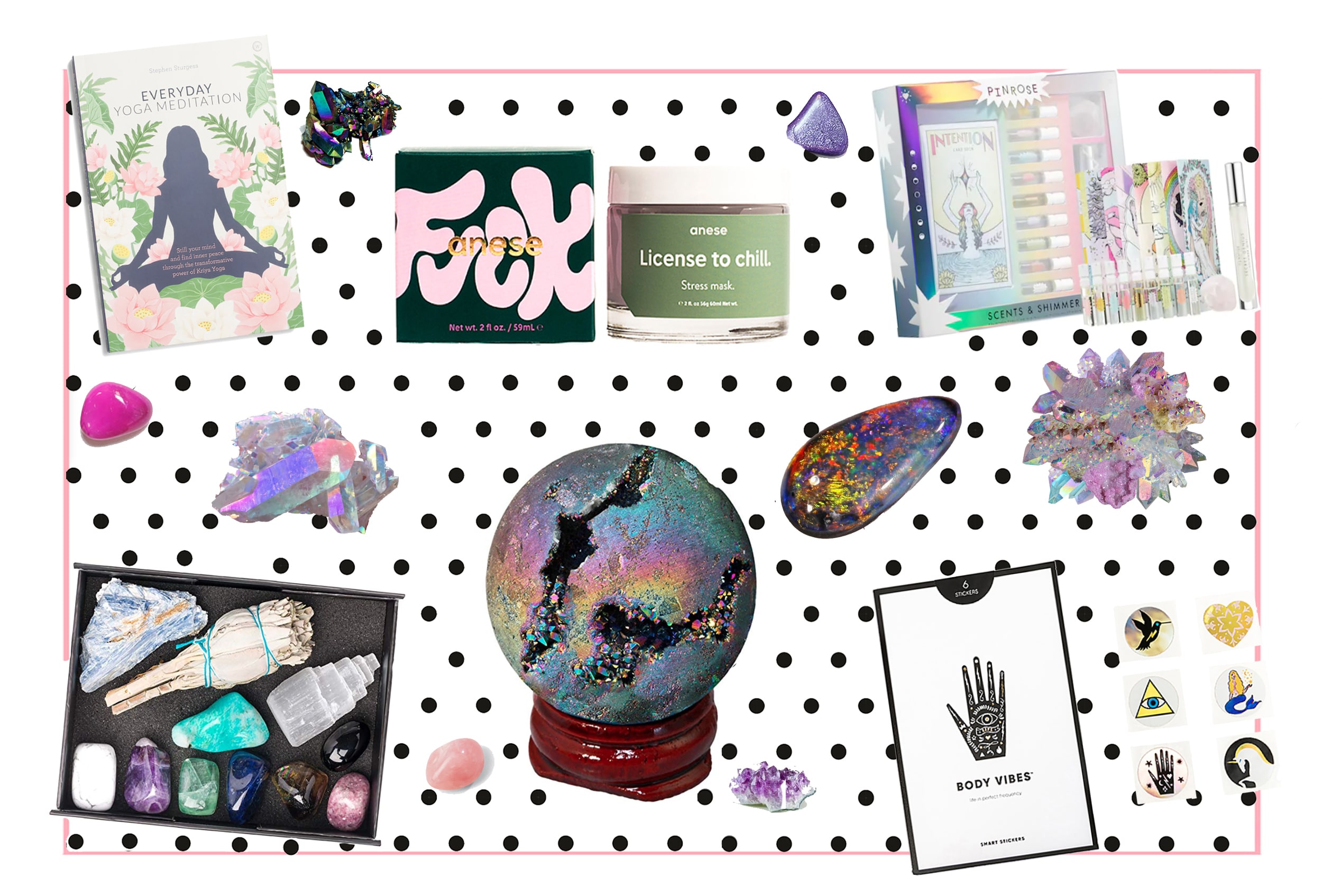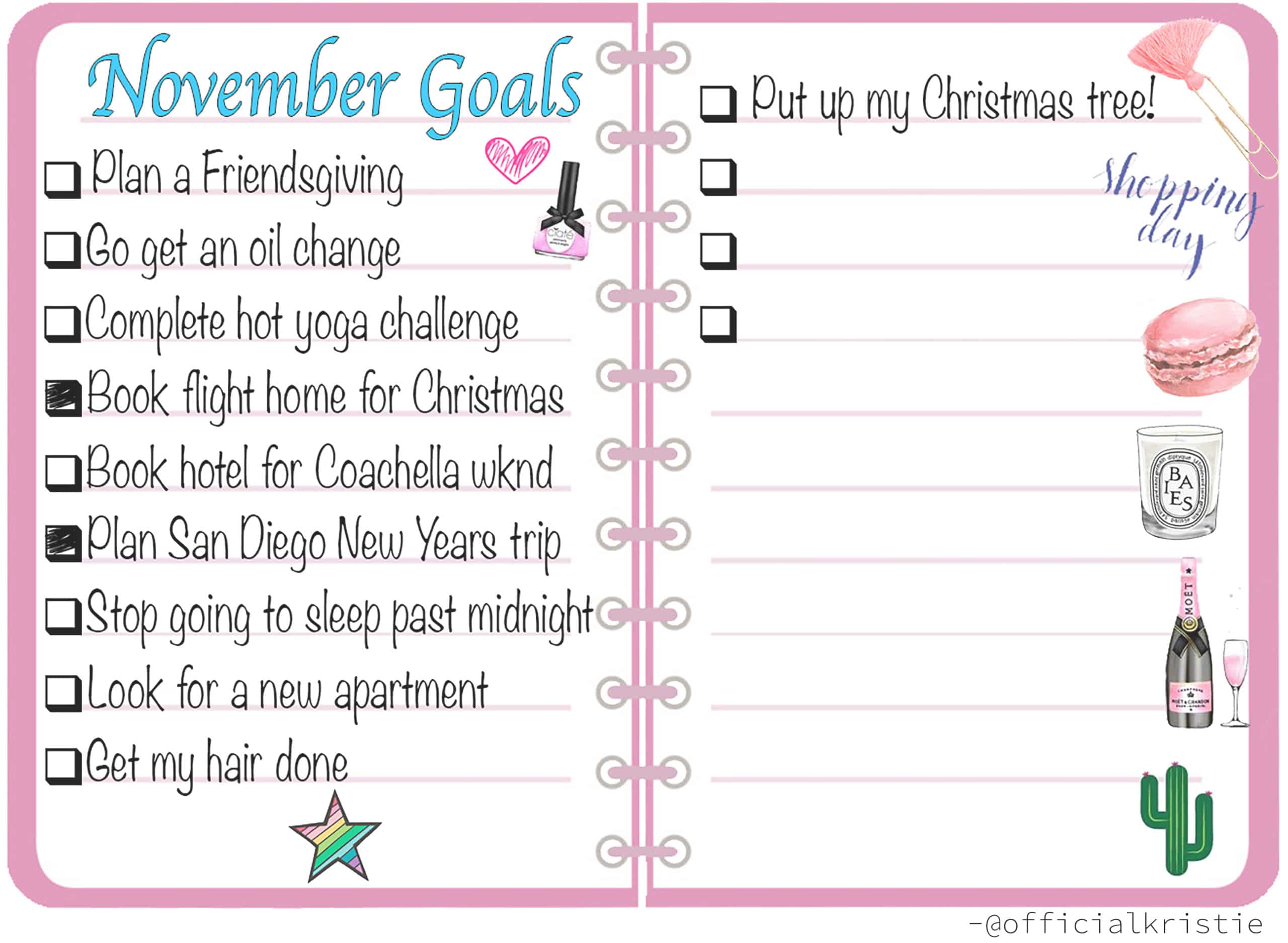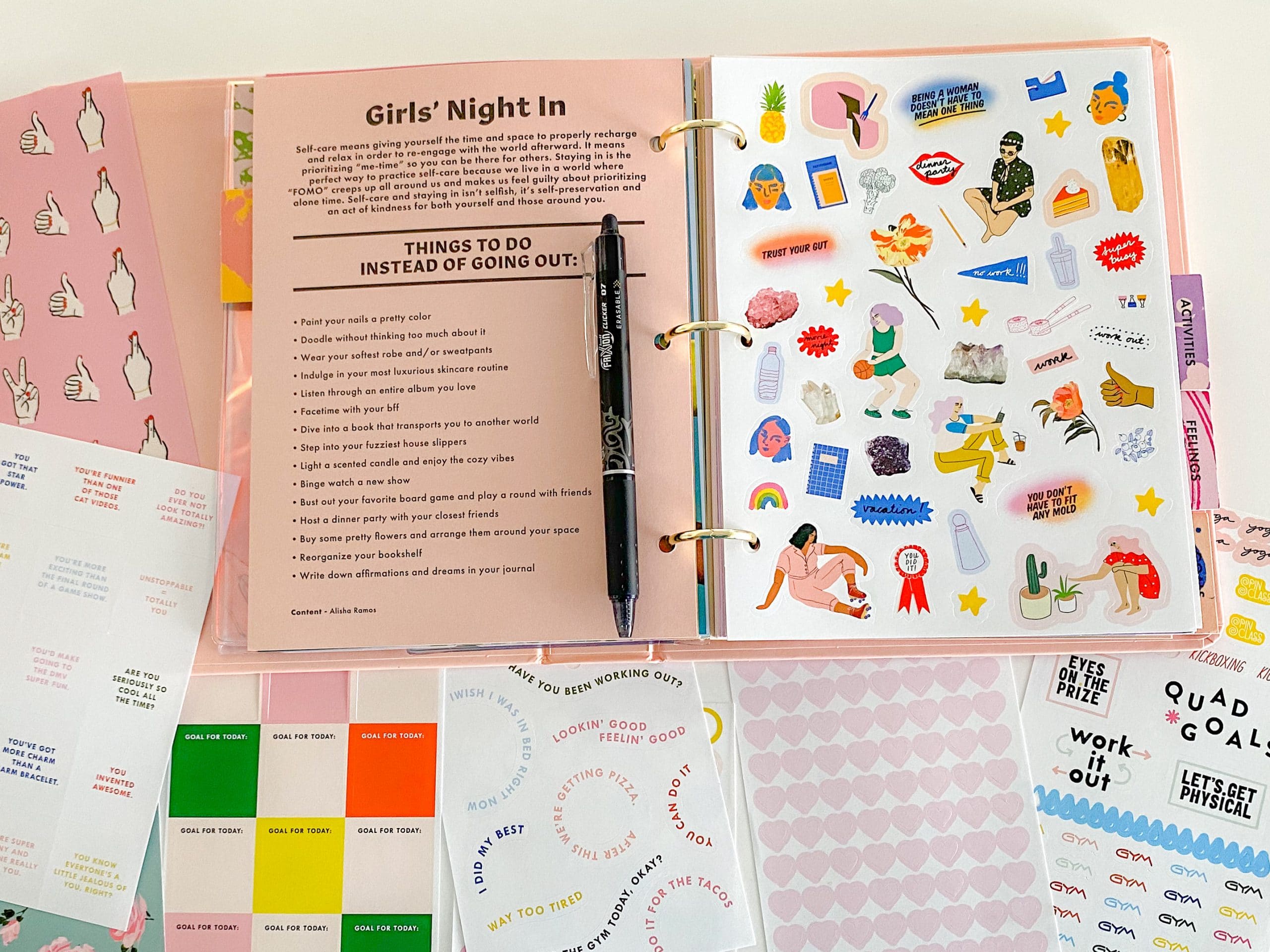Did you create any New Year’s resolutions for 2021? If you didn’t, it’s not too late to start. If you already fell off the wagon, so to speak, I’m going to show you how easy it is to jump right back on. Every year when January 1st begins I make a list of changes I want to make and things I’d like to do better. I start out strong. Then I break my progress. Why? Because life gets in the way or I lose sight of why I made the resolution in the first place. Eventually, I stop working towards my goals all together and say “better luck next year.” At the start of this New Year I made a commitment to myself that if I messed up, I wouldn’t let that discourage me. Here are 10 things I’m doing differently this year than past years, and so far so good.
Create a path filled with small steps.
Look at New Year’s resolutions as a pyramid. At the top, is your resolution and underneath should be the goals that will lead you to achievement. By starting out with small and realistic goals you’re creating a path to success. For example, if you made a resolution to workout, don’t begin by pushing yourself to do it daily. If you put too much pressure on yourself, you may make your resolution unattainable. Instead, make a plan to exercise two to three times a week (at first). After you’ve become accustomed to it, add more days if you choose.
Make a list of goals that will help you achieve your resolution(s).
Writing down your resolutions in a journal or planner can help you envision them. As you jot them down, create a plan for how you will follow through. This is a surefire way to track your progress and hold yourself accountable. I also like to plan for obstacles that could stand in my way and try to think of ways to move past them.
Don’t overwhelm yourself, instead, focus on one step at a time.
While it may be normal to have a few resolutions, in terms of keeping them, it’s better to have one big one or a few small ones. Since they’ll require behavioral changes, if you’re focusing on multiple goals at once, it’s hard to know where to put your time and energy. My New Year’s resolution is to become the healthiest version of myself. This may seem broad, but it really isn’t because I’ve come up with a plan on how to accomplish this. One way is to eat healthier, and the other is to workout more. I’ve already started by adding the recommended daily servings of fruits and veggies to my diet, drinking plenty of water, and cutting out processed foods. My next step will be to take my workouts from three times a week (something I was doing all last year), to four times a week. Then maybe I’ll add a fifth day.
Reach out and ask for support.
Talking about your progress or setbacks with your significant other, a friend, or family member can be a great motivator. Knowing you have their support may make it easier to follow through with your goals. Ask them to check in with you and see how you’re doing. Tell them that if they see you’re slacking off that they should hold you accountable. I also find motivation and encouragement if a friend and I share the same resolution or a very similar one. This especially helps if I don’t feel like working out. My friend is there to nudge me so I don’t slack off and vice versa.
Be kind to yourself.
At times, we’re hard on ourselves because we strive for unattainable perfection. We have to remember we’re not perfect and we have to find a balance between being forgiving while also holding ourselves accountable. In the past, if I skipped multiple workouts, I’d give up because I’d get discouraged. I realize now that it’s normal to revert on my progress and it doesn’t mean that I’m failing. I’ve learned to accept that I will make missteps along the way and I’m okay with that. That’s why it’s so important to make a plan on how you will recover from any setback.
Celebrate by rewarding yourself when you stay on course.
Much like being kind to yourself, rewarding yourself is essential to staying on track. During the planning phase, I’ll write down how I plan to acknowledge my achievements so I have something to work towards. For example, if I stay on course with eating healthy throughout the week, I’ll celebrate by splurging on a carb-ridden dish on Saturday. If I go a full month without skipping a workout, I’ll book a massage at my favorite spa, or I’ll do a little online shopping. By celebrating my success, I’m able to keep myself motivated in achieving my goals.
Whatever you do, don’t give up on yourself.
It’s pretty normal to lose sight of your resolution(s), especially a few weeks into the New Year. This year, I’m doing things differently (and so far it’s working). I made a commitment to myself that I would track my progress daily by asking myself these four questions and answering them honestly.
- Did you stay on course today?
- If not, what happened?
- If yes, how do you feel about it?
- What can you do differently tomorrow?
I read an interesting article that says it can take anywhere from 18 days to 254 days to form a new habit. Reading this put things into perspective and made me realize it’s okay if I mess up. What’s more important is continuing on my journey because these new habits and positive changes will become second-nature, eventually.
Break old habits before starting new ones.
If your resolution is to get healthier through diet and exercise, but you still smoke, it’s going to be harder to accomplish this. If you make a plan to stop smoking first, and then follow through with changing how you eat and exercise, you’ll have better results in the long run. Moral of the story: it’s better to stop bad habits before starting new ones. This way you have a clean slate, more motivation, and the right mindset to add new behavioral changes into your way of living.
If you feel like you’ve failed—start over.
It’s normal to feel discouraged and a loss of hope. What’s important is to continue trying, which will eventually lead to accomplishing what you set out for. A resolution doesn’t need to be successful in January or even February; you have all year to start over and keep working on it. I’ve told myself that I’m not putting a strict time constraint of my progress (or lack of), because it will leave me stressed and wanting to give up. If I mess up, I’ll start over and that’s okay. I keep reminding myself why I’m doing this and what I’m going to gain.
Learn from your milestones and setbacks.
Finding success in reaching your New Year’s resolutions is an exploration that may prove to be more difficult than you expected. We will encounter setbacks, missteps, and relapses. This is all part of the growth process and journey. Don’t see these as failures, instead, look at them as learning opportunities. If I fall off course, I will document what happened, why it occurred, and what I can do to be sure it doesn’t happen in the future. This is essential, so I don’t repeat the same mistakes. It will also help me discover more about myself and understand my thought process.
Remember to celebrate your progress, keep your end goal in mind, and continue to tell yourself why your resolutions are important to you.
Wishing everyone a happy, healthy, and successful 2021!
*This article contains some affiliate links.




